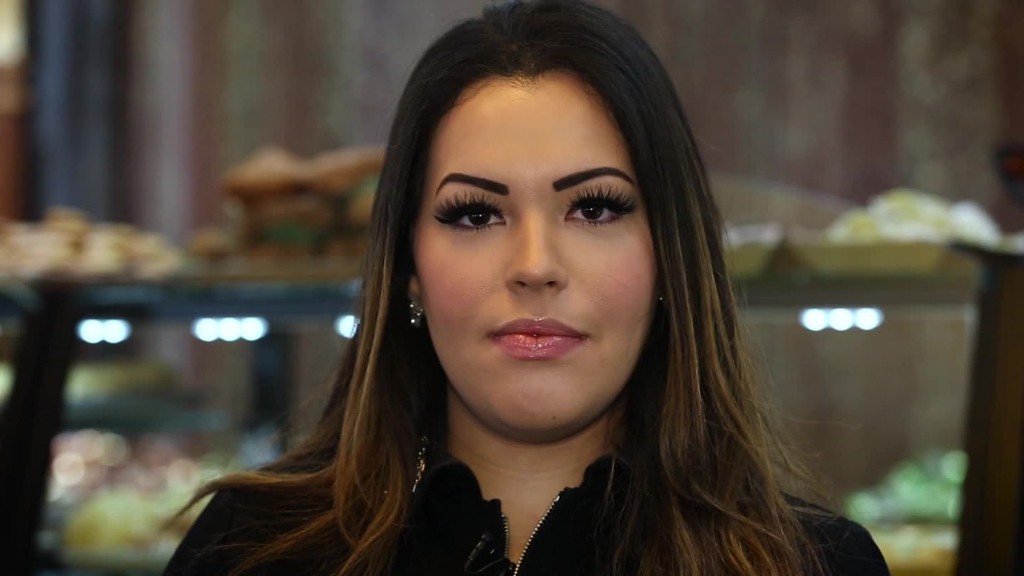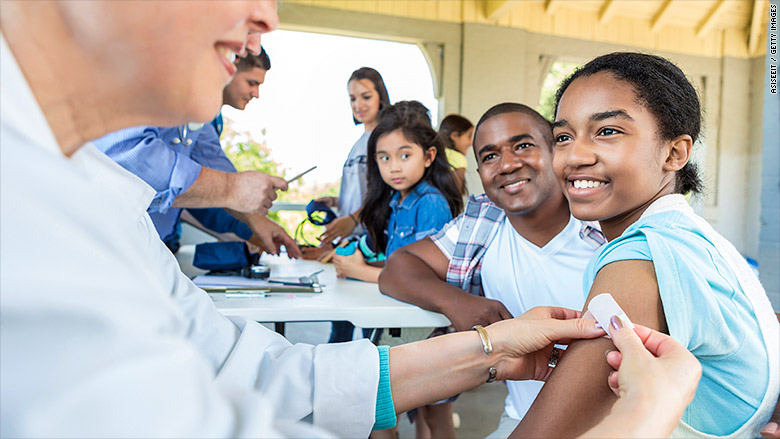
America's health care system relies heavily on foreign doctors, especially in underserved areas already struggling with a serious doctor shortage.
Now physicians groups, medical colleges and doctors in the field are concerned that President Donald Trump's temporary immigration ban restricting people from seven Muslim-majority countries from entering the U.S., will mean there will be even fewer doctors available in rural communities.
"There could very well be a patient in a rural area who had an appointment with their doctor this week and the doctor was not allowed back into the country," said Matthew Shick, director of government relations and regulatory counsel with the American Association of Medical Colleges. "At a time when the United States is facing a serious shortage of physicians, international medical students are helping to fill an essential need,"
Related: Obamacare's impact on this Alaska town with only one doctor's office
Each year, more than 6,000 medical trainees from foreign countries participate in medical residency programs through J-1 non-immigrant visas, according to the American Association of Medical College (AAMC). J-1 visa holders who were out of the country when the ban went into effect won't be able to start or finish school unless it's lifted.
There are also about 1,000 J-1 visa applicants who are seeking to go to medical school this year who are from the seven countries affected by the ban, according to the AAMC
Once they complete their residency, physicians can either return to their home country for two years before they are eligible to re-enter the U.S. through a different immigration pathway, such as an H1-B worker visa, or they can apply for a Conrad 30 J-1 Visa Waiver.
This allows them to extend their stay in the U.S. as long as they commit to serving in rural and underserved areas for three years.

In the last 15 years, the Conrad 30 J-1 Waiver has funneled 15,000 foreign physicians into underserved communities, according to the American Association of Medical Colleges.
"Even though this is a little known visa program, the J-1 Visa Waiver has done more to recruit physicians to underserved areas in this country than even the National Health Services Corps," said Shick. (The federally-funded National Health Services Corps offers loan repayment assistance to physicians who are either U.S.-born or nationalized citizens who agree to work in places where there's a shortage of doctors for at least two years.)
Related: Trump travel ban and what you need to know
The American Medical Association, which represents medical doctors across the country, sent a letter Wednesday to the Department of Homeland Security asking for clarity on the visa ban.
"While we understand the importance of a reliable system for vetting people from entering the United States, it is vitally important that this process not impact patient access to timely medical treatment or restrict physicians and international medical graduates (IMGs) who have been granted visas to train, practice in the United States," the letter said.
The AMA stressed that the ban would worsen access to health care in rural areas, noting that foreign medical graduates are "more likely to practice in underserved and poor communities, and to fill training positions in primary care and other specialties that face significant workforce shortages."
The Department of Homeland Security did not directly respond to an inquiry regarding the impact that the immigration ban is having on the medical community. Instead, the agency said it will continue to enforce the executive orders which "ensures that we have a functional immigration system that safeguards our national security."
The State Department, which manages the J-Visa program, said it is aware of the AMA's request for clarification on the visa ban.
State Department spokesman Nathan Arnold said the government may issue J-visas to people who are from one of the blocked countries if it is of "national interest." He would not confirm whether a doctor shortage would be considered in the national interest. Instead, Arnold said exceptions are being considered "on a case-by-case basis" and the agency would "provide additional details as they are available."
Related: Insurers warn: We're outta here with no Obamacare replacement
The nation's teaching hospitals are trying to assess how the ban could hurt the pipeline of future physicians.
Mid-March is when Match Day happens. This is when graduating medical students are matched with residency programs.
"No one knows the long-term effect of the executive order," said Mona Signer, president of the National Residency Match Program.
She said medical organizations and teaching hospitals are seeking clarification from the Trump administration.
"However, it seems likely that residency program directors will be reluctant to rank J-1 visa applicants because they may not be able to enter the country to begin training."
The AMA is worried, too.
"Guidance is urgently needed from the Administration to ensure the upcoming residency matching program does not leave training slots vacant and that all qualified international medical graduate applicants can participate," the letter said.
-- Are you a physician on a Conrad 30 J-1 Waiver currently practicing in an underserved area and from one of the 7 countries in the travel ban? We'd like to hear from you. Please email Parija Kavilanz at parija.bhatnagar@turner.com.





